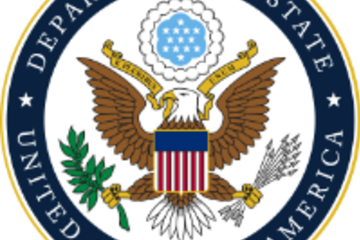The US Embassy Nairobi invites interested applicants to submit proposals from implementing partners for 2022 -2023 English Access Microscholarship Program (Access) in response to the reference Notice of Funding Announcement (NOFO). Due to the uncertain situation with the COVID19 pandemic in Kenya, the Program might be delayed or postponed. There might also be restrictions in numbers of people who can attend public gatherings, travels and curfews hours, which might affect the implementation of the program. In this regard the submitted proposal should have an innovative component to engage Access students both in person and virtually. For virtual programs, proposals should offer creative ideas for remote/online content delivery, online/virtual promotional activities, and virtual participant/audience follow-up.
Background Information
The English Access Microscholarship Program (Access) is a global program supported by the U.S Department of State. Access provides highly motivated economically disadvantaged youth with an opportunity to learn English language skills and enhance leadership through teaching the basics of American culture and values of democratic development and civic engagement. It gives participants skills that may lead to better jobs and educational prospects. The program targets 13 – 20 year old students from underprivileged families to participate in afterschool instructions and intensive sessions. Since its inception in 2004, approximately 198,408 students in more than 95 countries have participated in the Access Program. In Kenya, there are more than 780 Access alumni, many of who are studying at, or have graduated from, top-tier universities throughout the country. The Access program must provide two years of English study, consisting of at least 180 hours of instruction per year.
The goal of the Access Program is to equip bright, talented, economically deserving students with a range of global citizenship skills anchored by the core components of enhanced English language skills and a stronger Kenyan-U.S. cross-cultural understanding. The global citizenship skills aim to build individuals with stronger self-esteem and a keen sense of public service in an increasingly globalized world. Global citizenship skills include, but are not limited to, critical and creative thinking, leadership, information technology, civic outreach, and media literacy. Participants should commit to enroll in classes during the full two year program. Selected participants must be bright, economically-disadvantaged secondary school students with a beginning level of English, ideally in Form 2 at the beginning of the program in January 2022. Students will graduate with certificates of completion from the U.S. Embassy Nairobi at the end of their two-year program.
PROGRAM DESCRIPTION
The Public Diplomacy Section of the U.S. Embassy in Nairobi announces an open competition to equip bright, talented, economically deserving students to learn English, develop civic engagement and leadership skills and gain multicultural awareness through teaching the basis of American culture and vales. Project-based and task-based approaches should be employed in order to help learners to understand and work on authentic local and global challenges. The English language component should break from traditional models to deliver a more meaningful, interactive language learning experience centered on the learner. Project-based and experiential approaches should be employed in order to help the learner use English to understand, discuss, and resolve authentic local and global challenges. Enhancement and off-site immersion activities should help extend the language learning experience beyond the classroom walls. Access classrooms should serve as strong educational models for a community. Programs should, where possible, aim at sharing new and relevant practices with English teachers in other schools, especially those from which the Access students are chosen. Other members of the community, including interested administrators, content teachers, and future educators studying at nearby universities, can also be included in outreach efforts. The participants’ parents should also be made aware of what and how the students are learning, and appraised of what they can do at home to encourage their children to learn more effectively. Civic outreach activities should further cement the connection between the Access program and community.
Providers can submit proposals of varying size with a minimum of $50,000 USD and a maximum of $175,000 USD, depending on the Provider’s capability, infrastructure, and geographic spread. The grantee should work with students in Mombasa and/or Isiolo Counties.
The project supports the Embassy’s strategic goal of sustaining Kenyan economy to achieve rapid economic growth. Program proposals should include using U.S. exchange program alumni, and the target region is Mombasa and/or Isiolo Counties. Ideal partners include Educational Institutions, non-profit organizations that use innovative methods to reach to economically disadvantaged youths in this region.
U.S. Embassy Nairobi reserves the right to split the project between two or more providers and may request providers to adjust their final proposals and budgets as necessary. All possible costs – instruction, books/materials, transportation, enhancement activities, administration, food and possible accommodation for intensive sessions – should be covered.
For more information about this opportunity or to apply, please visit grants.gov


